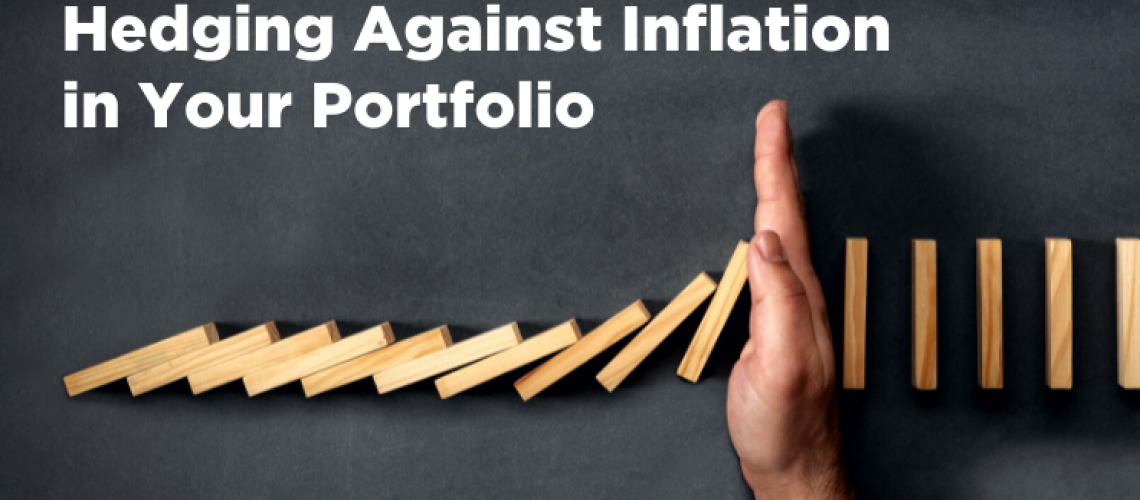Rising inflation is a concern among investors. Here are five ways to protect your investments.
Over the past year, investors have become increasingly worried about how inflation might impact their portfolios. One measure of inflation, the Consumer Price Index (CPI), climbed to 5.1 percent in January, its highest level in three decades. Supply chain issues, government stimulus, and increased consumer demand have contributed to higher prices for goods and services.
Inflation can be a problem for investors because it decreases the spending power of every dollar saved—over the long-term, your money won’t stretch as far. Luckily, there are steps you can take to hedge against inflation and protect your portfolio. Here are five strategies to consider.
1. Stay invested in stocks
Inflation is a normal part of the market, but during times of high inflation, it’s worth revisiting your portfolio to determine if it still meets your desired rate of return and risk tolerance. Stocks offer higher potential returns, which can help you outpace the rate of inflation. But they can also be volatile. Consider holding a greater portion of stocks to take advantage of higher returns if your risk tolerance allows it.
2. Minimize exposure to traditional bonds
The Bank of Canada has signaled that it will likely raise interest rates this year in an effort to control inflation. Traditional bond prices are inversely related to interest rates. In other words, when interest rates rise, bond prices usually decrease. As a result, during times of high inflation, you may want to avoid overexposure to bonds in your portfolio, as they can rapidly decrease in value when interest rates rise.
3. Consider Real Return Bonds
Real Return Bonds are Government of Canada bonds that can provide fixed income and protection from inflation. These bonds pay a semi-annual interest rate, also known as a coupon rate, that is tied to CPI and adjusted for inflation. The principal amount of the bond is also indexed to protect the bondholder from price erosion brought on by inflation. Bondholders receive inflation-adjusted payments on June 1 and December 1.
4. Invest in real estate
Real estate does well during inflationary periods largely because as inflation rises, landlords are able to pass higher costs on to their tenants. You can invest in real estate directly by becoming a landlord and collecting rent on properties you own. Or you can invest indirectly by buying shares in real estate investment trusts, or REITs. REITs are companies that own and manage real estate, such as office buildings, apartments, or retail spaces. The companies generate income by collecting rent. They then pass the profits on to their shareholders.
5. Explore commodities
The price of commodities, such as oil and corn, tends to rise with inflation, making commodities a popular inflation hedge. You can invest in commodities through mutual funds or exchange-traded funds that hold diversified baskets of investments. Another way to take advantage of the positive correlation between commodities and inflation is to invest in businesses heavily involved in commodities, such as mining companies, for example.
Remember that your investment portfolio is constructed based on your long-term goals, risk tolerance, and time horizon. Avoid making rash investment decisions based on potential short-term changes in the economy. Be sure any hedging strategies you use fit your overall plan and help you stay on track to meet your financial objectives.
Sources
https://www.bnnbloomberg.ca/four-hedges-to-shield-your-finances-from-inflation-1.1609404
